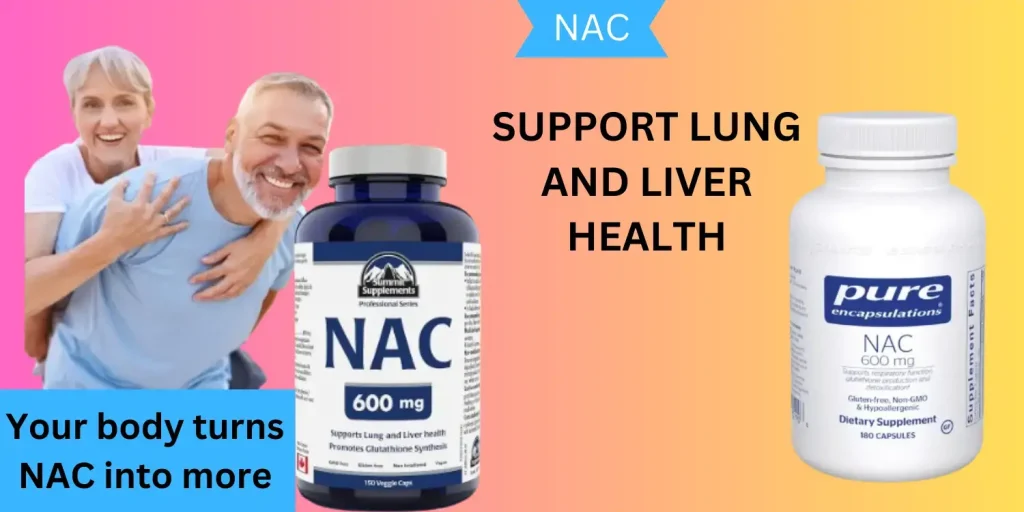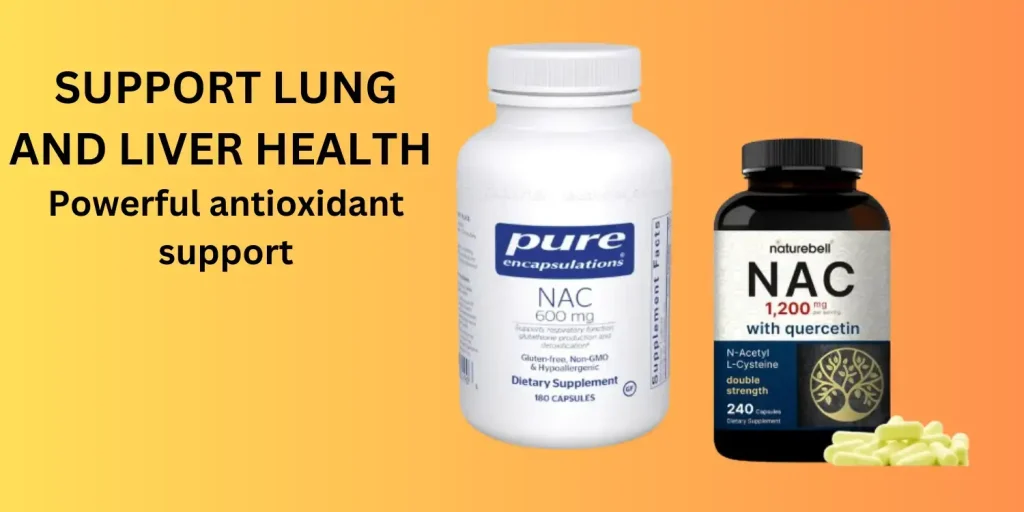Introduction about NAC?
As an antioxidant, N-acetylcysteine (NAC) furnishes the body with precursor material required to produce glutathione, which protects cells from destructive processes. Studies show that its origin from cysteine has become established as a treatment for diverse illnesses. The body requires glutathione for cellular protection against destructive chemicals and free radicals since restoring these protective levels relies on N-acetylcysteine. It reaches clinical use for acetaminophen overdose treatment because it strengthens liver detoxification processes while safeguarding the organ from damage.
It functions both to thin mucus while making it easier to breathe; thus, doctors treat patients with bronchitis and patients with chronic obstructive pulmonary disease (COPD) with it. The latest scientific research shows it supports psychological wellness together with antiviral effects against brain and inflammatory disorders. Medical and health professionals use it as an essential dietary supplement because of both its numerous health applications and its documented safety track record.

What is NAC used for?
Its protective properties against free radicals combined with its ability to boost glutathione production make N-acetylcysteine (NAC) useful for many healthcare operations and medical applications. Medical institutions use NAC to treat Tylenol overdoses because NAC helps protect liver health during detoxification processes. Healthcare providers recommend it as a mucus-thinning substance for the clearance of respiratory secretions associated with cystic fibrosis, asthma, and chronic obstructive pulmonary disease (COPD).
Clinical professionals administer it for treatment of respiratory conditions that affect patients with chronic bronchitis. Research shows it provides dual benefits for mental well-being combined with respiratory health by lowering anxiety indicators and depression symptoms across Parkinson’s disease and Alzheimer’s disease. Some research findings show it works as a broad-spectrum health product because it reduces inflammation, supports immune function, and defends against oxidative cell damage.
What is the main function of the NAC?
Among all body antioxidants, glutathione stands as the most important because N-acetylcysteine (NAC) primarily generates this vital substance. The body requires glutathione to counter dangerous free radicals and reactive oxygen species (ROS) because they generate oxidative stress and cell damage. It promotes detoxification along with immune system improvement and protection against oxidative damage to tissues and organs through its enhancement of glutathione activity.
Residents benefit from it because its makeup comprises mucolytic agents that dissolve mucus and make it thinner. People with COPD, asthma, or chronic bronchitis benefit significantly from it because of its mucolytic properties. It functions as an antioxidant to shield the liver and particularly provides protection post-acetaminophen drug toxicity. Nearly all these benefits come together when patients take NAC because the supplement strengthens their natural defenses against inflammation and oxidative stress while detoxifying toxic chemicals and promoting cellular health.
What are the benefits of using this NAC?
Multiple health benefits result from N-acetylcysteine (NAC) because it exhibits strong antioxidant properties. Raising glutathione amounts strengthens the body’s antioxidant mechanisms to combat oxidative stress damage to cells and tissues and stands as it’s leading strength. It effectively protects the liver against toxins, including those produced by acetaminophen overdose, although it is used as an antidote for that medication.
Long-term respiratory patients, including those with cystic fibrosis, asthma, and COPD, can use it because it successfully increases lung functioning and reduces mucus viscosity. Studies show that it displays promising results for mental wellness, and it appears to reduce symptoms including depression as well as anxiety, schizophrenia, and bipolar disorder. At the same time, it provides immunity improvement while minimizing inflammation and potentially supports patients with neurological diseases, including Parkinson’s and Alzheimer’s.

What is the main purpose of NAC?
N-acetylcysteine (NAC) functions as a key precursor for glutathione, which represents the body’s most essential antioxidant system. Through glutathione elevation, it protects cells from oxidative stress by neutralizing destructive free radicals that do harm to tissues while contributing to aging and disease development. It maintains cellular health while helping natural detoxification processes inside the body work properly.
When treating acetaminophen overdose using it, the medication offers specialized protection to liver tissues against poisoning substances. The mucolytic properties of it help individuals with respiratory diseases such as asthma, chronic bronchitis, and chronic obstructive pulmonary disease (COPD) because it breaks down mucus while thinning it. It functions to enhance detoxification capacity as its primary action, along with reducing inflammation, protecting against oxidative effects, and bringing general health benefits.
What is the use of the NAC drug?
Doctors commonly administer the drug N-acetylcysteine (NAC) primarily to dissolve mucus in patients’ airways to enhance respiratory mucus discharge. Physicians use N-acetylcysteine (NAC) to treat multiple conditions, along with cystic fibrosis, bronchitis, and chronic obstructive pulmonary disease (COPD). Through disulfide bond disodification of mucus, it performs as a breathing aid and corrects lung function.
People use it as treatment for breathing problems and execute its therapeutic effects on multiple disorders. Emergent use of it provides protection against liver damage by acting as an antidote against toxic acetaminophen (Tylenol) consumption. The medical field uses NAC to treat mental health disorders because it controls brain glutamate levels, thereby benefiting patients with depression, bipolar disorder, and obsessive-compulsive disorder (OCD).
The therapeutic potential of it as an anti-inflammatory substance with antioxidant capabilities needs more research exploration before achieving complete understanding in these therapeutic areas.
Is NAC good for kidneys?
The protection and therapeutic characteristics of N-acetylcysteine (NAC) benefit kidney health by preventing renal disease and supporting its management. Through its antioxidant capabilities, it helps lower oxidative stress damages while clearing out harmful free radicals from the body. Tests have evaluated it as a protective agent for kidneys against the renal disorder CIN throughout many medical scenarios where contrast agents are used.
Certain studies suggest NAC improves chronic kidney disease function by reducing oxidative damage while simultaneously controlling inflammation. Medical professionals believe it helps protect kidney function in patients undergoing treatments that harm kidney health, including chemotherapy, and for patients experiencing AKI.
The therapeutic value of it shows promise, although additional scientific evidence must prove effectiveness against kidney diseases, so medical supervision remains essential for use.

